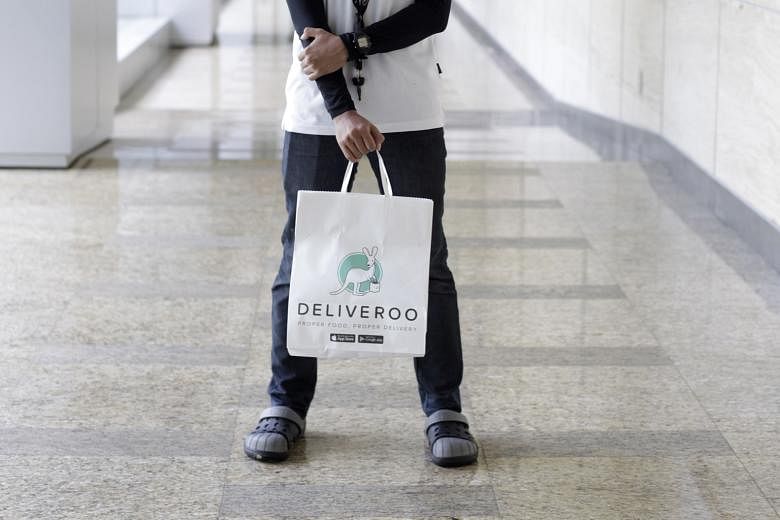Freelancers work in an environment of almost constant uncertainty - not knowing where the next gig is coming from.
That means it is important for these workers to put in place at least some level of certainty in the midst of all that other uncertainty.
Mr Christopher Tan, Providend's chief executive, advises that it is prudent for a self-employed person or freelancer to be prepared for emergencies, to set future goals and to run his business like a corporation.
Here are 12 things gig workers can do to secure their financial future.
1. SET UP AN EMERGENCY FUND
It is advisable to set up an emergency fund that will cover you for six months of expenses if you lose your job. Independent or gig workers should probably set aside a larger emergency fund to help them fund 12 months of expenses, said Mr Vasu Menon, OCBC Bank's senior investment strategist.
"This is because with the economy going through challenging times ahead, regular freelance jobs may be harder to come by and the dry spells could last longer," he said. Last year, Singapore's employment growth rate hit a 13-year low.
Mr Tan's advice: The less certain your income, the more you need to set aside.
Mr Vincent Ee, managing director of Financial Alliance, cautioned that without regular employment income, it is difficult to get bank loans for housing or cars.
"A self-employed person should focus on accumulating enough cash reserve in order to meet high deposit payment for housing or other big purchases. Perhaps prior to becoming self-employed, one should consider having his home loan properly restructured before it is too late."
2. REVIEW MEDICAL INSURANCE NEEDS
Reviewing healthcare insurance needs is one of the first things independent workers should do, given the rising cost of medical care.
"Unlike full-time employees, such workers do not enjoy medical benefits for hospitalisation expenses. So it is imperative that they protect themselves by buying hospital and critical illness insurance plans," said Mr Menon.
Mr Tan advised that as a gig worker does not have medical benefits, he should ensure that he has a suitable medical contingency plan, so that in the event of a medical crisis, he will be able to afford good medical care as well as replacing any lost income.
Mr Brandon Lam, the Singapore head of financial planning group at DBS Bank, noted that if such a worker wants the option of treatment in a private hospital, staying in a higher-class ward or additional coverage, he should check out the integrated shield plans managed by a private insurer.
This is in addition to the coverage offered by MediShield Life for all Singaporeans and permanent residents, where the benefits are calculated based on the costs in Class B2/C wards in a public or restructured hospital.
3. MANAGE OUTPATIENT MEDICAL COSTS
Mr Menon noted that as we become older, some of us may fall ill more frequently, develop chronic illnesses or get injured while exercising.
Such illnesses and injuries may require outpatient medical treatment which is typically not covered by many medical insurance plans.
"Without employee medical benefits, independent workers ought to look for ways to reduce outpatient healthcare costs. To manage outpatient medical costs, independent workers can do some advance research to seek out medical practitioners who impose lower charges for consultation and medications.
"Alternatively, for chronic illnesses, consider seeking treatment in government outpatient clinics, where Singaporeans can enjoy significant subsidies," Mr Menon said.
4. REVIEW LIFE INSURANCE NEEDS
For independent workers who are key breadwinners supporting a family or other dependants, it is especially important to buy life insurance, said Mr Menon.
"This is because with an irregular income stream, you may not be able to save enough to leave behind sufficient financial resources for your dependants if you pass away prematurely. If you find whole life insurance plans costly, you can consider term plans which are more affordable," he advised.
Mr Lam recommends that a simple rule of thumb to assess the amount required for life and disability insurance is to calculate how much you need per month to support your family.
"Take that amount and multiply it by the period that your family needs in order to continue with their current lifestyle, such as until your children graduate from university. You'll need to take inflation into consideration.
"You also need to include any outstanding liability to repay if you do not have other insurance to cover them," said Mr Lam, adding that an alternative method is to multiply annual income by 10.
For gig economy workers who are always on the move, such as drivers and delivery workers, where the risk of accidents may be higher, they should consider topping up their protection with personal accident insurance, said Mr Lam.
-
12
-
Number of months of expenses gig workers should cover with the emergency fund they are setting aside.
-
35%
-
Keep your total debt payment below 35 per cent of your estimated yearly income.
-
2.5%
-
Guaranteed interest rate a year earned in CPF savings in the Ordinary Account . Make full use of the CPF schemes and interest rates to build your nest egg.
-
20%
-
Percentage of their income that gig workers should aim to save when they can as their income streams are unpredictable.
5. MINIMISE LIABILITIES
Mr Tan advised that as income can be uncertain, it is important to reduce debt levels as much as possible.
"Keep your total debt payment below 35 per cent of your estimated yearly income.
"If possible, reduce this amount even further. You can do this by being prudent. Live a simpler life, avoid overextending just to buy a house or car," he said.
Mr Lam suggested regularly tracking your liabilities. "If you are taking a home loan, consider a loan that is of the right size for you vis-a-vis the maximum that you are eligible to borrow."
6. MAKE REGULAR CPF CONTRIBUTIONS
Unless you are a savvy investor, make full use of the CPF schemes and interest rates to build your nest egg.
Mr Lam noted that your CPF savings in the Ordinary Account earn a guaranteed interest rate of 2.5 per cent a year, while savings in the Special Account and Medisave Account earn a guaranteed minimum interest rate of 4 per cent a year. The first $60,000 of your combined CPF balances, of which up to $20,000 comes from your Ordinary Account, earn one percentage point more.
Mr Tan suggests that self-employed workers make voluntary CPF contributions of up to $37,740 a year.
"The amount will be spread across the Ordinary Account, the Special Account and the Medisave Account. In this way, you put yourself into a tax-efficient 'forced-saving' mode to save for your mortgage payments, retirement and even medical sinking fund," he explained.
7. TOP UP CPF SPECIAL ACCOUNT
Do CPF top-ups into your Special Account if you are able to afford it, so that you can benefit from the compounding effect of the higher interest rate, said Mr Tan. This will allow you to accumulate your savings faster and achieve your retirement goal earlier.
8. SET UP A BUDGET AND SAVINGS PLAN
Mr Tan recommended setting up a budget to intentionally park savings meant for retirement and children's education. It is equally important to have the discipline to keep to the budget to control your expenses.
Mr Menon said that for employees with a more predictable income stream, it is recommended that they save at least 10 per cent of their monthly income.
"However, for independent workers whose income streams are unpredictable, they should aim to save even more when they can - perhaps at least 20 per cent of their income to meet their medium- to long-term needs like paying for their children's tertiary education and funding their own retirement."
Mr Ee advised creating a structured savings plan similar to that of a private pension scheme. This is because without CPF contributions, the self-employed person is way behind in terms of saving.
Those who are self-employed should save at least 20 per cent of their income and make maximum contributions ($15,300 for Singaporeans) per year into the Supplementary Retirement Scheme account.
Also, managing cash flow is key to those who are self-employed.
"With irregular income, the self-employed may easily mismanage their cash flow. It is important to consciously keep the fixed expenditure low. Unmatched financial commitment creates immense stress for the self employed," Mr Ee said.
9. BUILD UP PASSIVE INCOME
Ms Chung Shaw Bee, the regional and Singapore head of wealth management at UOB, said that for investors without regular income, it is important to build up various sources of passive income to supplement their earned income.
This can be rental income from investment properties, dividend yields and payouts from instruments like stocks, bonds, unit trusts, annuities and insurance savings plans that are staggered.
10. STAY RELEVANT
Mr Tan recommended setting aside an amount on a yearly basis for personal learning and development. This will ensure that you remain relevant in an uncertain world so that you can continually earn an income and possibly increase your income.
11. RETAIN PROFITS
Set aside part of your revenue as retained profits so as to give you the option of expanding your business if desired or to cope with business contingencies without affecting your own income or savings, said Mr Tan.
12. NETWORKING
Continue to network with people from diverse backgrounds to suss out business opportunities and stay relevant in a world that is changing, added Mr Tan.



